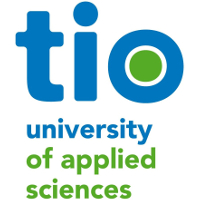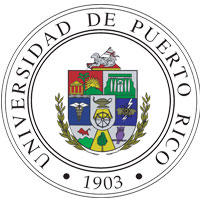雅思写作答题技巧:突破高分瓶颈
Editor:Mark| Time:2025-02-22在备考雅思的征程中,写作部分常常让众多考生倍感压力。雅思写作不仅考查考生的英语语言能力,更考验其逻辑思维与论证能力。掌握有效的答题技巧,能助力考生在这一部分脱颖而出。接下来,我们将深入探讨一些实用的雅思写作答题技巧。
精准审题,明确方向
剖析题目要求
拿到雅思写作题目,首先要仔细研读题目要求,明确题目类型。雅思写作常见的题目类型包括观点讨论类、利弊分析类、问题解决类等。例如,观点讨论类题目通常会要求考生讨论某个话题的不同观点并给出自己的看法;利弊分析类题目则需要考生分析某事物的优点和缺点;问题解决类题目则重点在于提出解决问题的方法。准确判断题目类型,才能为后续的写作奠定正确的基础。
抓住关键词
题目中的关键词是解题的关键线索。例如,“Some people think that the government should spend more money on education than on recreation. Do you agree or disagree?” 这道题中的关键词就是“government”“spend more money on education”“recreation”以及“Do you agree or disagree”。考生要紧紧围绕这些关键词展开论述,确保文章紧扣题目要求,避免跑题。
构建清晰逻辑框架
开头引入简洁有力
文章开头要迅速引出话题,并表明自己的立场。可以采用背景引入、问题引入等方式。比如,对于“Should students be allowed to use mobile phones in school?”这个话题,开头可以这样写:“In modern society, mobile phones have become an essential part of people's lives. However, when it comes to whether students should be allowed to use them in school, there is a heated debate.” 这样的开头既引入了话题,又自然地过渡到对问题的讨论。
主体段落逻辑连贯
主体段落是论证的核心部分,要做到逻辑清晰、层次分明。可以采用“总 - 分 - 总”的结构,每个段落围绕一个中心观点展开论述。例如,在论述“出国留学的好处”时,一个主体段落可以这样写:“One of the significant advantages of studying abroad is the exposure to different cultures. When students go to a foreign country, they have the opportunity to experience diverse customs, traditions, and ways of life. This broadens their horizons and helps them develop a more global perspective. For instance, they may learn about different festivals celebrated in other countries, which enriches their cultural knowledge.” 在这个段落中,首先提出中心观点,然后通过解释和举例进行论证,使逻辑更加严密。
结尾总结升华
结尾要对全文进行总结,再次强调自己的观点,并可以适当进行升华。比如,对于前面提到的关于学生是否应该在学校使用手机的话题,结尾可以这样写:“In conclusion, while mobile phones can bring some benefits to students in school, strict regulations should be in place to ensure that they are used appropriately. By doing so, we can strike a balance between the advantages and potential distractions, enabling students to make the most of their educational opportunities.” 结尾既总结了全文,又提出了合理的建议,使文章更具完整性。
丰富论证方法
举例论证
举例是一种非常直观且有效的论证方法。通过具体的事例来支持自己的观点,能使文章更具说服力。比如,在论述“环境保护的重要性”时,可以举例:“For example, in recent years, due to deforestation in the Amazon rainforest, many species have lost their habitats and are on the verge of extinction. This shows that environmental damage has a profound impact on the entire ecosystem.”
对比论证
对比论证可以突出事物的特点和差异。例如,在讨论“传统教育和在线教育的区别”时,可以这样写:“Traditional education requires students to attend classes in person, which provides face - to - face interaction with teachers and classmates. In contrast, online education offers more flexibility in terms of time and location, allowing students to study at their own pace. However, traditional education may be more suitable for students who need immediate feedback and guidance, while online education is better for those who are self - disciplined and can manage their time effectively.” 通过对比,清晰地展现了两种教育方式的优缺点。
因果论证
因果论证用于阐述事物之间的因果关系。比如,在论述“人们变得越来越肥胖的原因”时,可以说:“One of the main reasons for the increasing obesity rate is the sedentary lifestyle that many people lead nowadays. With the development of technology, people are spending more time sitting in front of computers or watching TV, which reduces their physical activity. As a result, they burn fewer calories and gain weight easily.”
提升语言表达准确性与多样性
积累丰富词汇
丰富的词汇量是写出优秀雅思作文的基础。考生要积累不同话题相关的词汇,如教育、科技、环境等。例如,在描述教育质量时,可以使用“high - quality education”“excellent educational resources”等词汇。同时,要注意词汇的正确拼写和用法,避免出现低级错误。
运用多样句式
除了简单句,要学会运用复合句来提升文章的复杂度。比如,定语从句、状语从句、宾语从句等。例如,“The book which I bought yesterday is very interesting.”(定语从句)“If we don't take action to protect the environment, our future generations will suffer.”(状语从句)“I believe that hard work is the key to success.”(宾语从句)通过运用多样句式,使文章更加流畅自然。
总之,雅思写作答题技巧涵盖了审题、逻辑构建、论证方法以及语言表达等多个方面。考生需要在平时的练习中不断运用这些技巧,加以总结和反思,才能在雅思写作考试中取得理想的成绩,突破高分瓶颈,实现自己的留学梦想。





